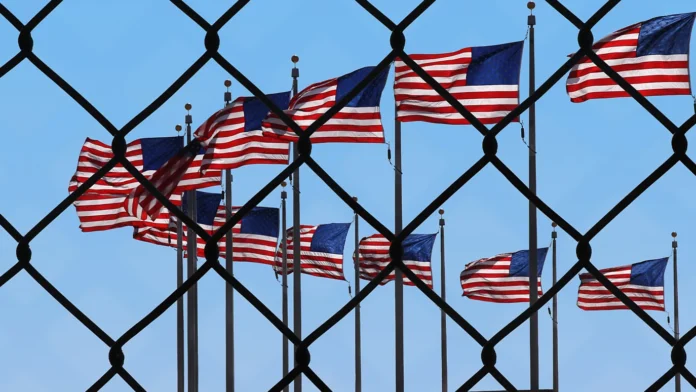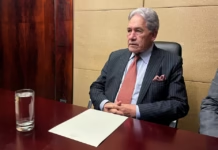As President Donald Trump’s policies stir international tensions, an increasing number of foreign travelers are reevaluating their trips to the United States.
A growing list of countries, including Germany, the UK, Denmark, Finland, and Portugal, have issued travel warnings due to tightened border security, controversial tariffs, and an aggressive immigration crackdown.
Now, some countries, particularly Canada, are witnessing a movement toward outright boycotting U.S. travel.
Canada’s Shift: A Symbolic Rejection
Canada, which sends more visitors to the U.S. than any other country, is at the forefront of this shift.
With 20 million Canadians traveling to the U.S. annually, the impact of even a modest reduction in visits is significant. Statistics Canada reported a 20% drop in border crossings as of February 2025, with experts predicting a $2.1 billion loss in spending and 14,000 jobs at risk in the U.S. travel industry.
This boycott sentiment has resonated deeply with many Canadians, particularly as they feel increasingly unsafe traveling to the U.S. Travel journalist Kate Dingwall reflected a widespread feeling of unease, stating that her concerns about being detained at the border amid rising tensions were enough to cancel her planned U.S. vacation.
Keith Serry, a comedian from Montreal, also canceled his shows in New York, citing personal safety and a refusal to contribute to the U.S. economy in such a politically charged environment.
The Detention Crisis: A Catalyst for Change
Canadian travelers have reported facing unprecedented scrutiny at U.S. borders, with some detained for extended periods despite having valid documentation.
The high-profile case of a Canadian woman detained by U.S. Immigration and Customs Enforcement (ICE) for two weeks has added fuel to the fire. Critics argue that these incidents, alongside Trump’s rhetoric, exacerbate feelings of hostility and fear.
Amar Charles Marouf, a Canadian strategist, highlighted that the political climate south of the border has caused many Canadians to reconsider their travel destinations, favoring more welcoming nations like Mexico, Europe, and South America.
Economic Impact on the U.S. Tourism Industry
The U.S. tourism industry, which was experiencing record growth, is now bracing for a downturn. The U.S. had recently been recognized as the top global tourism market, generating $2.36 trillion in economic impact in 2024 alone. However, with tourism forecasts revised downward, the impact on the economy is becoming clearer. The U.S. is now projected to see a 5.1% decline in international visitors, with economists attributing this shift to Trump’s tariffs and strained diplomatic relations.
In California, which saw over $24 billion in revenue from international visitors in 2023, the loss of Canadian travelers could have a severe ripple effect. Experts warn that the loss of tourists won’t just harm large corporations like hotel chains but also small businesses—ranging from restaurants to event planners—that depend on foreign dollars.
A Hit to Soft Power and Global Influence
The broader impact of these boycotts goes beyond economics; it threatens to erode the U.S.’s cultural influence. Neri Karra Sillaman, an expert in entrepreneurship, noted that fewer international travelers could signal the decline of U.S. “soft power,” which has historically been a symbol of openness, innovation, and cultural leadership. This could hurt America’s global reputation and make it more difficult to attract top talent, from academics to entrepreneurs, in the long term.
The Human Side of Travel Boycotts
Missouri lawyer John Beck emphasized the personal costs of these boycotts. As travel becomes more restrictive, families and business professionals are being caught in the middle. For many, the decision to avoid the U.S. isn’t about politics but about avoiding unnecessary complications—such as missing family events, losing business deals, or facing extended border delays. The pain of these disruptions is felt on both sides of the border.
Beck’s experience working with hundreds of clients who’ve canceled or postponed U.S. trips underscores how real and human the consequences are for travelers. Americans themselves are not immune to the effects of these policies, as they could find themselves isolated from the global community.
Looking Ahead: A Strained Relationship
As more countries issue travel advisories and travelers opt for alternative destinations, the U.S. may find itself at a crossroads. The long-term impact could be more profound than anticipated—affecting everything from the tourism industry to international relations. Whether the U.S. can recover its appeal to international tourists remains to be seen, but for now, it’s clear that Trump’s policies have led to a significant shift in global travel behavior.



















